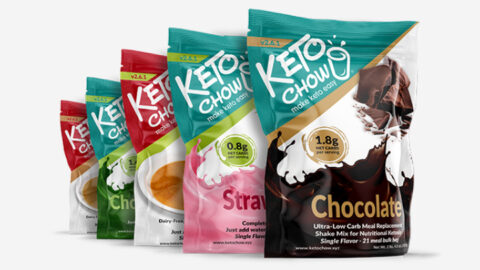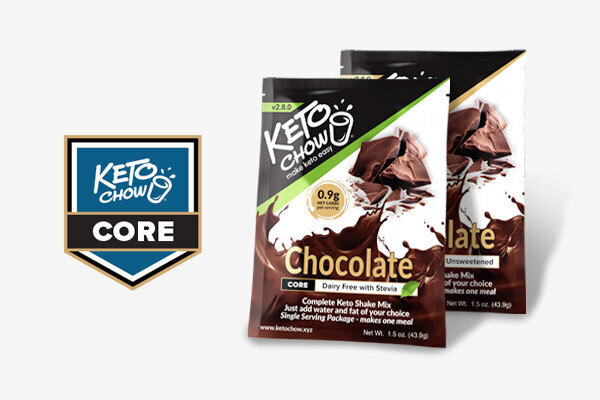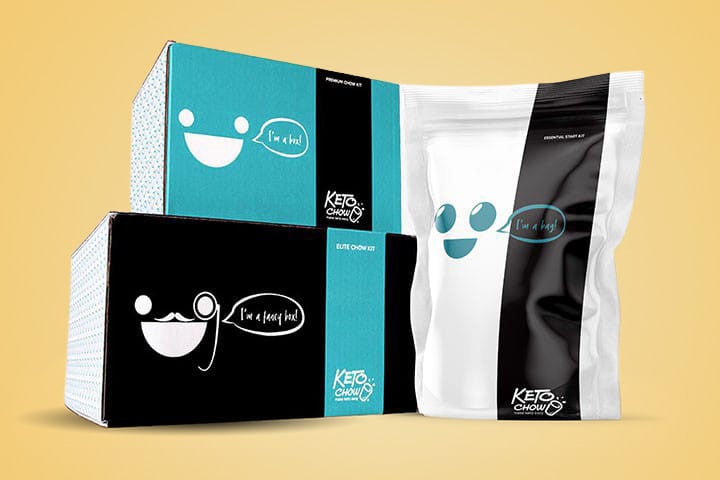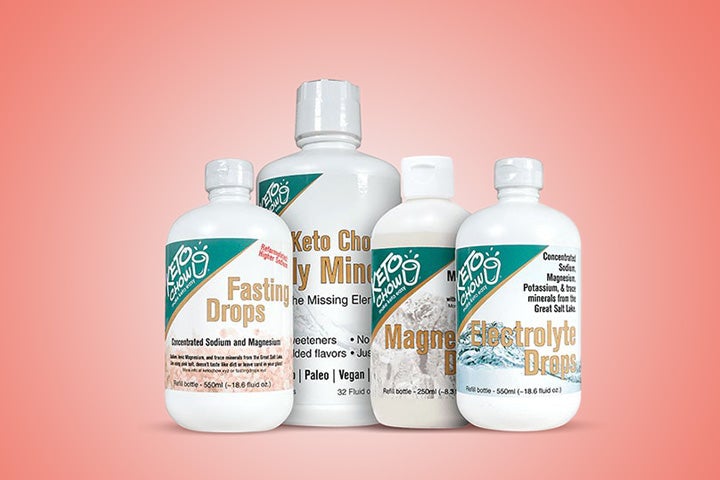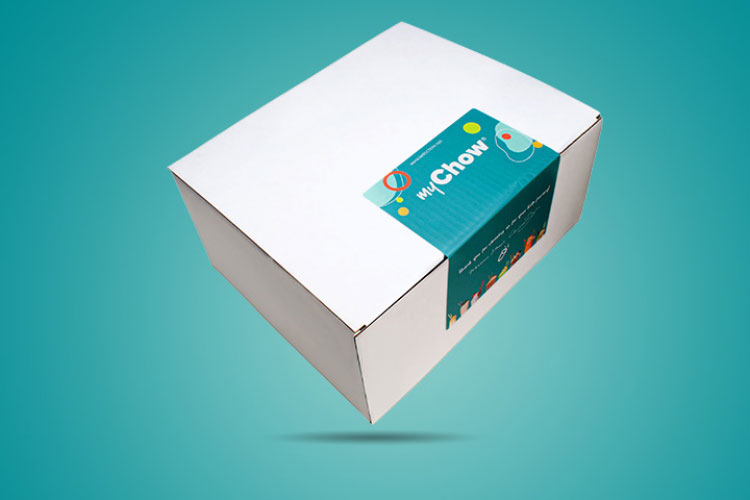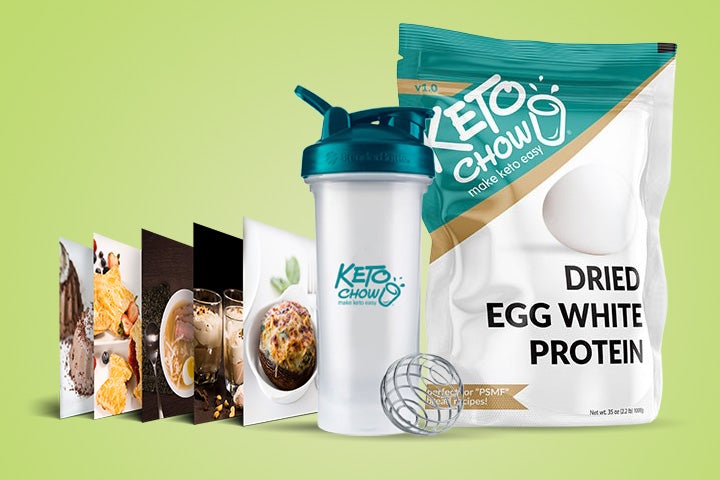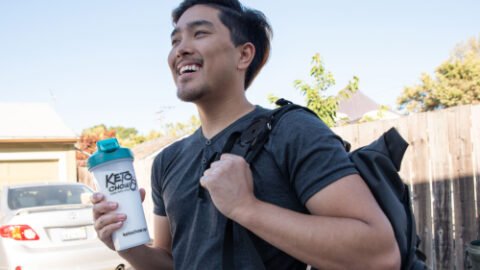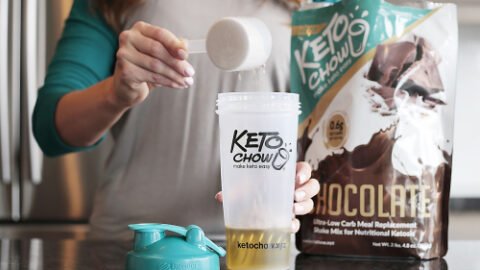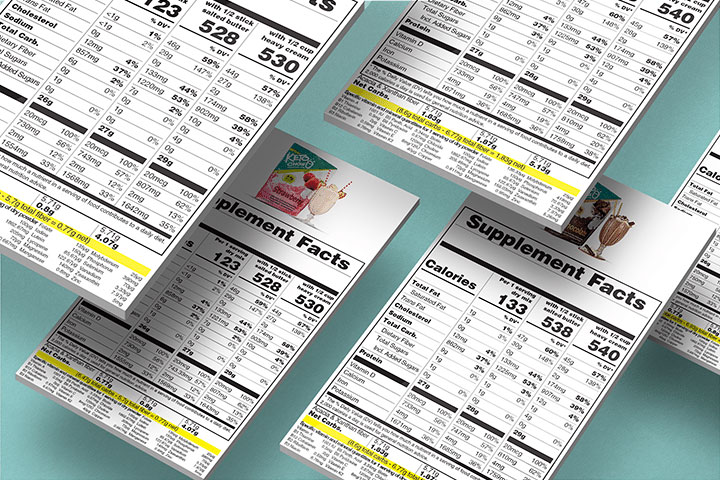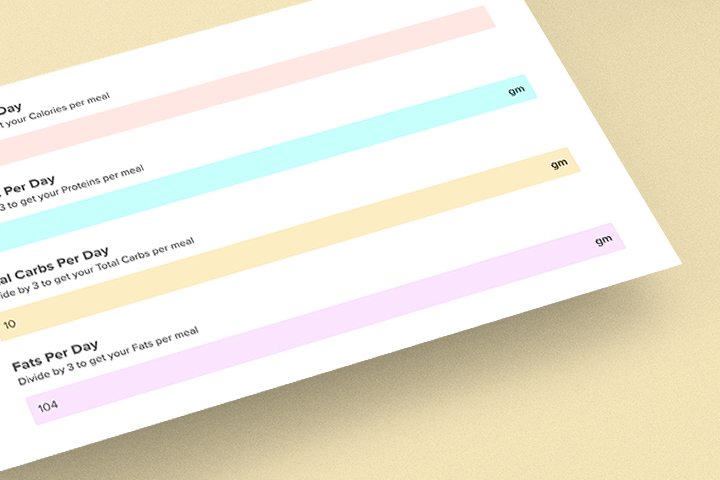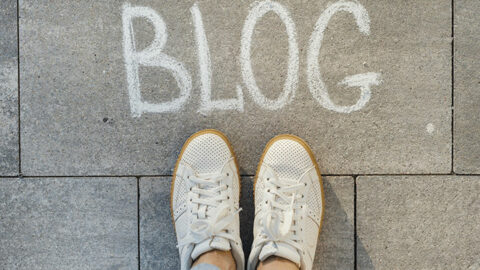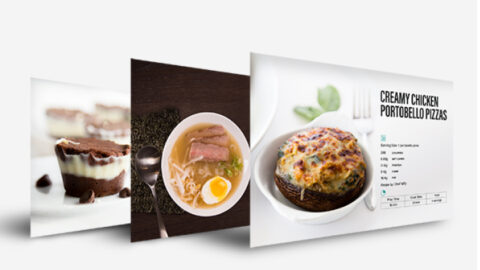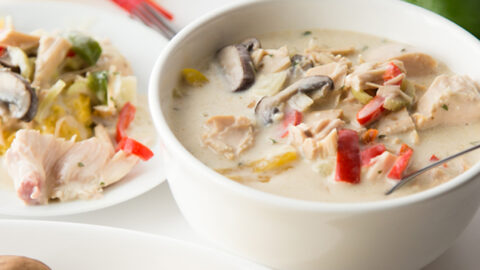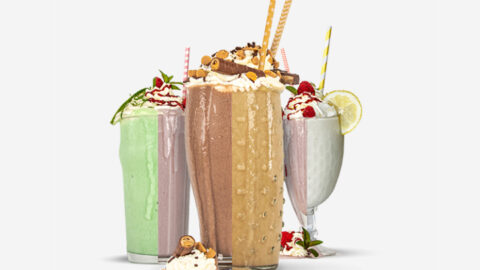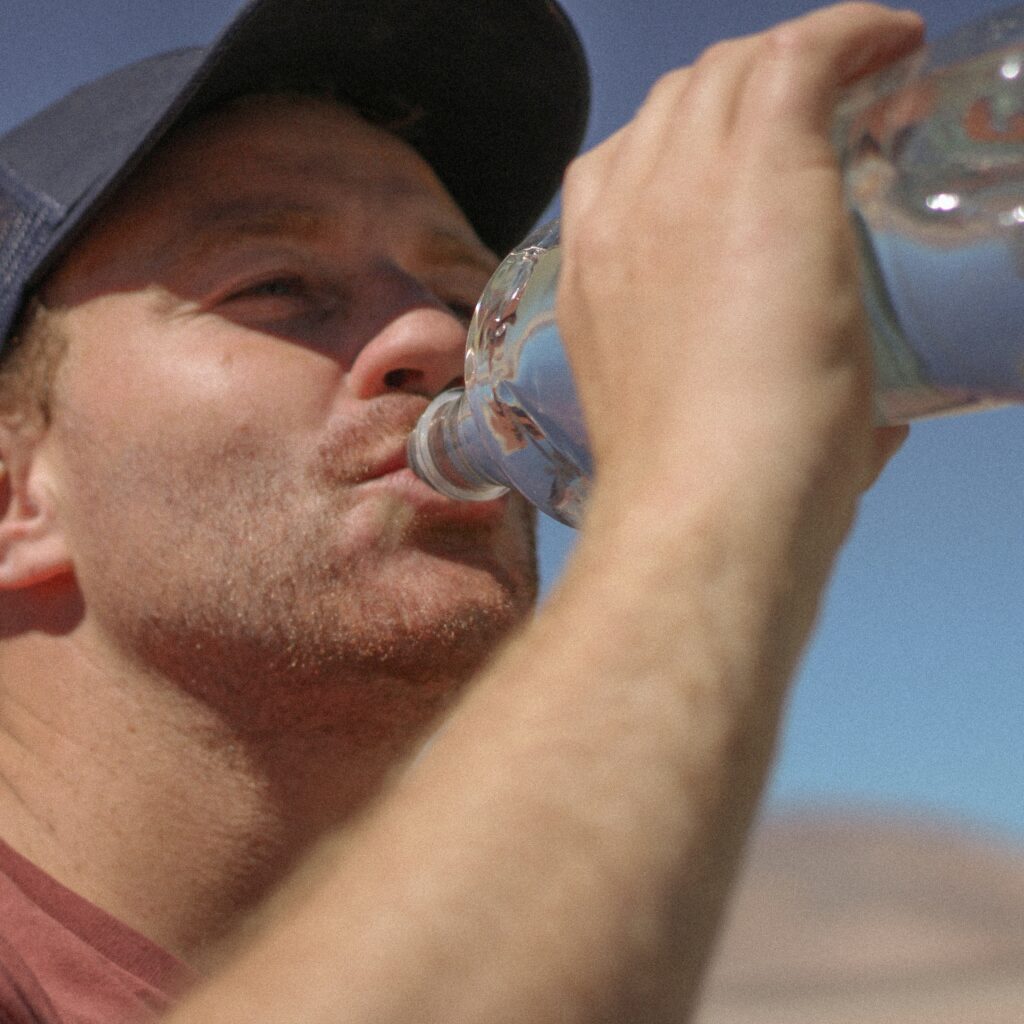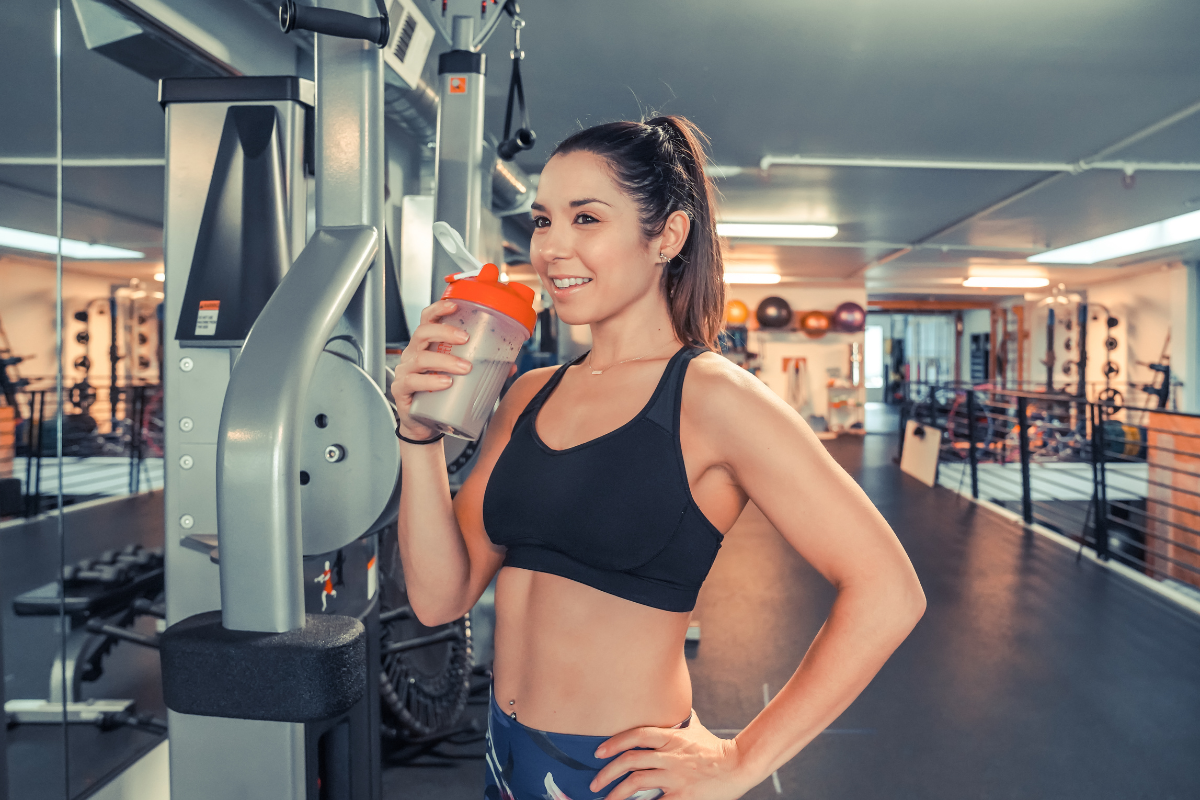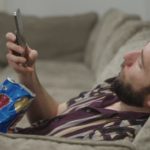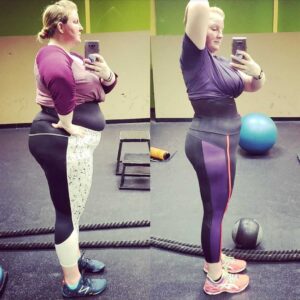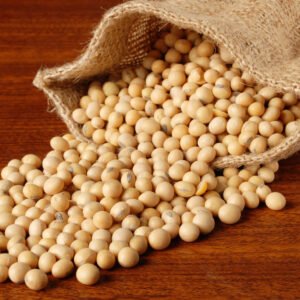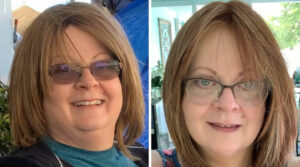It’s easy to know what to eat on a keto diet, but what about what to drink? Specifically, how much water should you drink on keto? Water accounts for as much as 70 percent of an adult’s body weight, so the question of hydration isn’t a trivial one.
And yet, our ancestors didn’t trek across the savannah with bottled water in tow or use apps to track their fluid intake, so it’s safe to say we can stay properly hydrated without obsessing about how much water we drink every day.
Let’s take a closer look at how much water to drink on keto.
Drink When You’re Thirsty
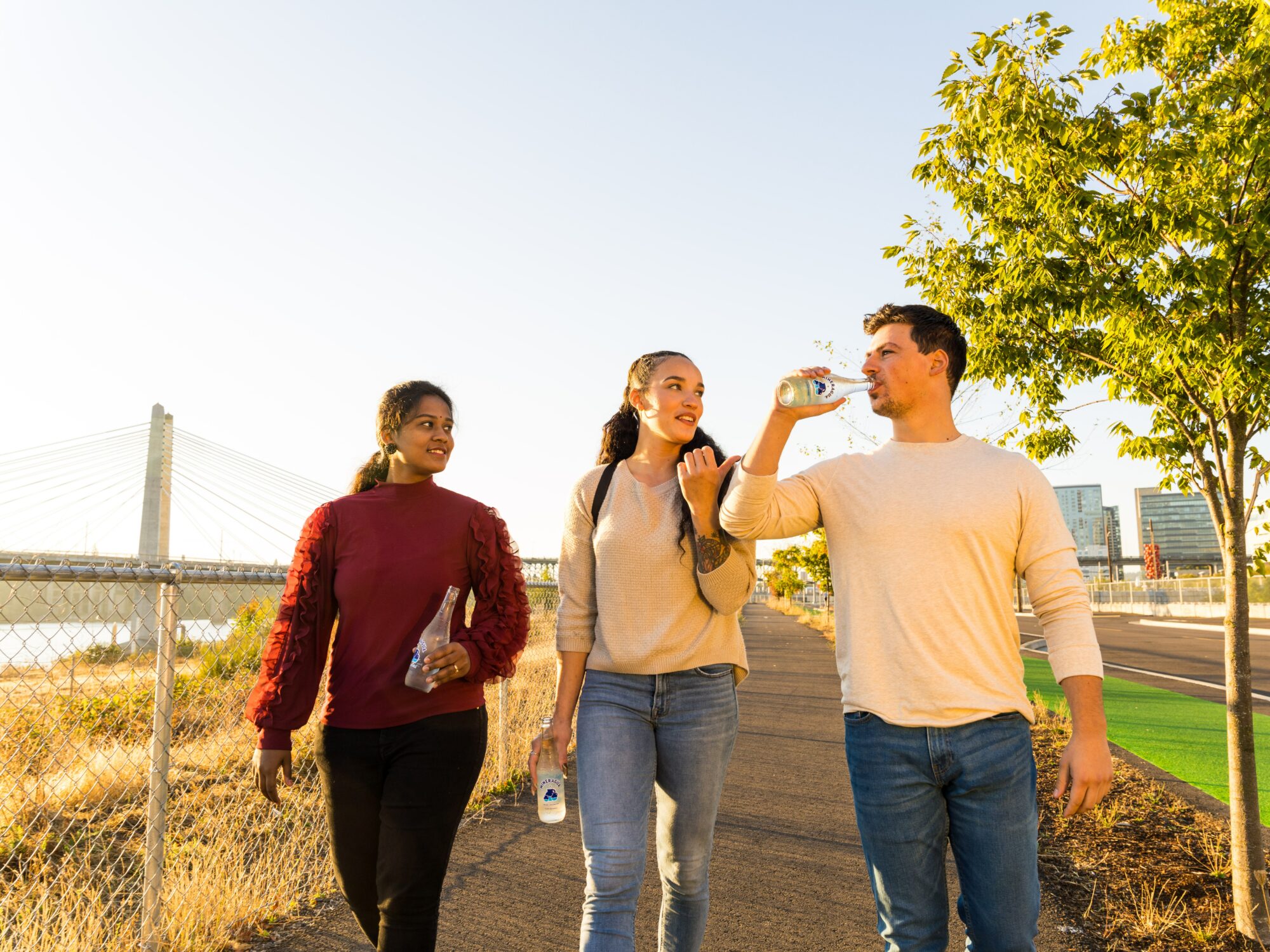
Don’t overcomplicate things. Drink when you’re thirsty. There’s no exact quantity of water that you need to drink daily, but you do need some. (You can survive for a long time without food, especially if you’re carrying a lot of excess body fat, but life-threatening dehydration can set in after only a few days without water, depending on the environmental conditions and your state of health.)
It’s a myth that you need to drink 8 (8-ounce) glasses of water a day. This oft-cited rule is a convenient way to make sure you get enough, but it’s unscientific and doesn’t apply to everyone. Even if you did need this much water, drinking water isn’t the only way to get it. Barring extreme environmental conditions or illnesses that cause you to lose more water (and minerals) than normal, you’ll get enough water simply by following your thirst.
Hydration Beyond Water
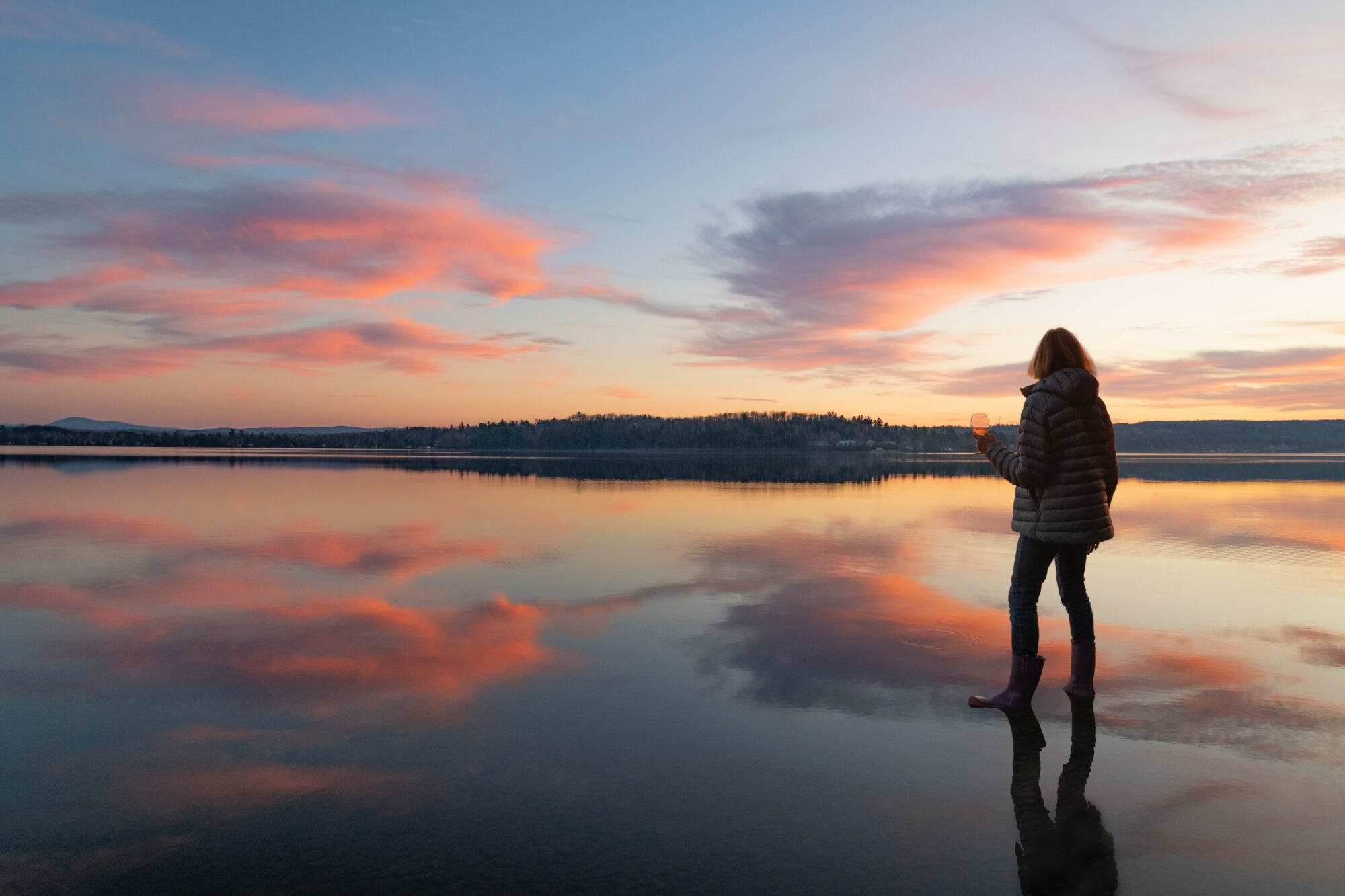
Think beyond the glass. Drinking water isn’t the only way your body gets water. You get some from the foods you eat, especially vegetables and fresh fruits. Even animal proteins, such as poultry and beef, contain a high water percentage (as much as 50-60% after cooking), so on a keto diet, your food is giving you more water than you might realize.
High-carb junk foods are much lower in water content (think crackers, potato chips, breakfast cereal, etc.), but since these are off-limits on keto, most of the foods you do eat will give you some water.
Make Up for Diuretic Beverages?
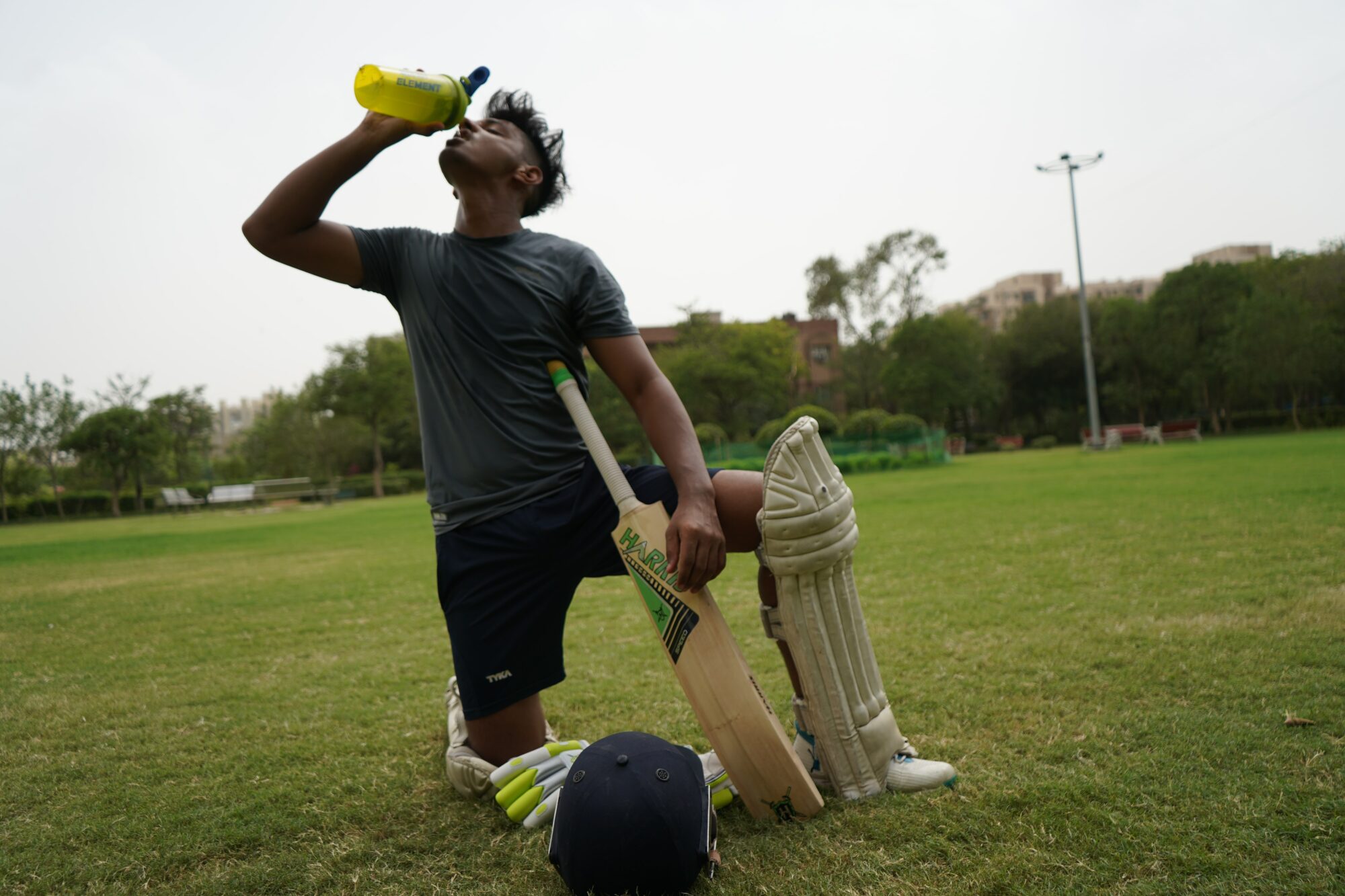
Depending on who you ask, coffee is either a gift from the heavens or an unsuspected health saboteur. Coffee and other caffeinated beverages do have a diuretic effect, but considering that coffee is mostly water anyway, drinking it in reasonable amounts won’t lead to dehydration and you don’t need to drink more water to offset the loss.
If you drink large amounts of coffee, though, or you use caffeine supplements or consume other diuretic beverages (such as alcohol), it’s not a bad idea to play it safe and drink some extra water.
Water Loss
Your body naturally loses lots of water every day. Even if you don’t sweat much, you can lose up to 2.5 quarts (2400 ml) per day. Obviously, you lose water when you urinate. Your feces also contain a bit of water, and you lose water via your skin and lungs, through sweat, evaporation, and respiration (breathing). Even when it’s cold out and you don’t think you’re sweating, you might still lose half a quart to a whole quart (500-1000 ml) of water per day.
Living in a hot climate or sweating a lot can lead you to lose even more water – as much as 1.5-3 liters of sweat per hour in extreme conditions. It’s critical to replace this, but don’t do it with plain water. When you sweat, you lose a lot more than just water.
You need to give your body back the electrolytes you lose, too. (When people run into problems from drinking too much water, it’s not so much the water, itself, that’s the issue – it’s that drinking a large quantity of plain water in a short amount of time can dilute the sodium concentration of your blood, resulting in a dangerous and even life-threatening condition called hyponatremia.)
So, if you’re working out intensely or if you’re dealing with a bout of diarrhea, increase your fluid intake, but be sure to add some electrolytes to replace those losses.
Water for Weight Loss?
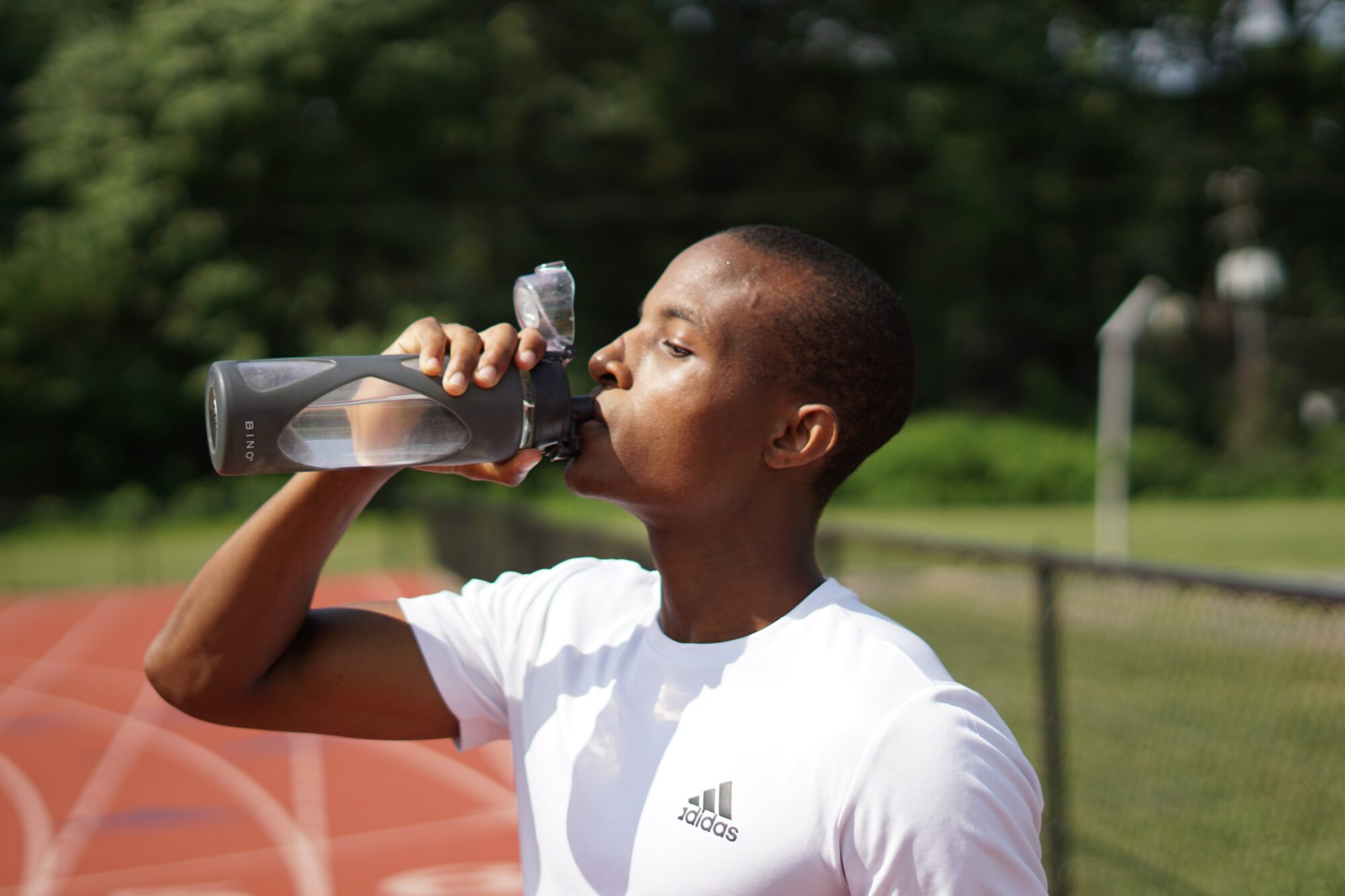
Confession: I’m guilty of perpetuating a myth about water. I’ve told clients that while there’s no specific amount of water they need to consume every day, they should drink enough so that they don’t mistake thirst for hunger.
I still think this is reasonable advice, but according to a researcher at Penn State University, “Hunger and thirst are controlled by separate systems in the body. People are unlikely to mistake thirst for hunger.”
So, drink water because it’s essential for the proper functioning of everything in your body, but you can let go of the worry that you’ll reach for food when what your body actually needs is water.
Fortunately, I’ve never misled anyone into thinking that being adequately hydrated would make them feel less hungry or that drinking more water was a magical hack to speed up weight loss. (If only!)
Conventional dieting advice would have you drink a large glass of water before a meal in an effort to fill up on water and thus eat less food. And sure, guzzling water might distend your stomach and make you feel full temporarily, but water doesn’t send your body the same satiety signals that food does, so you’re not going to fool your GI tract or your brain for long.
Whatever food you leave behind at that meal, you’re likely to make up for later on.
Is Color a Good Guide?
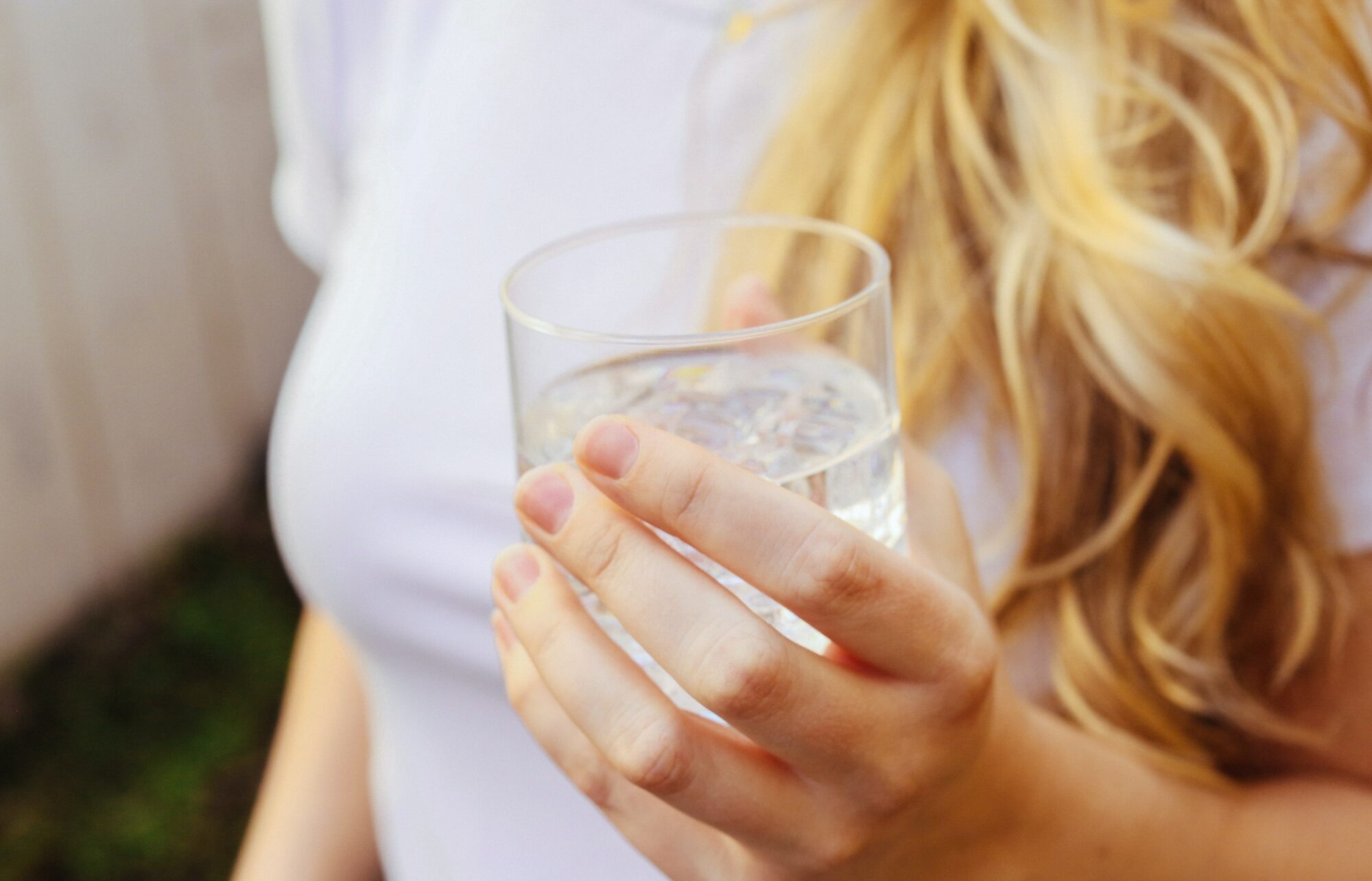
The color of your urine can give you some insight into your hydration status, but this simple way of assessing isn’t as ironclad as you might think. Urine normally ranges from nearly colorless to dark yellow, but a few different things can affect the color and it’s not automatically something to worry about.
For example, supplementing with B-vitamins (especially riboflavin) can cause your urine to be fluorescent yellow, and a bright pink color can result from eating beets. Beets aren’t typically included on keto diets, but if you happen to have some now and then, don’t worry if you see this temporary change in your urine. (It’s normal in this context but it can be alarming if you forgot you had beets earlier that day or the day before!)
Various medications can alter the color of your urine, so if you’ve started a new medication and you’ve noticed a change in your urine, check the potential side-effects of the drug and see if this is listed among them.
On the other hand, urine with an abnormal color might indicate a medical problem, so consult your doctor if you’re concerned about a sudden change. (This chart from Cleveland Clinic is a handy reference if you want to see where your pee falls along the color spectrum.)
Bottom Line
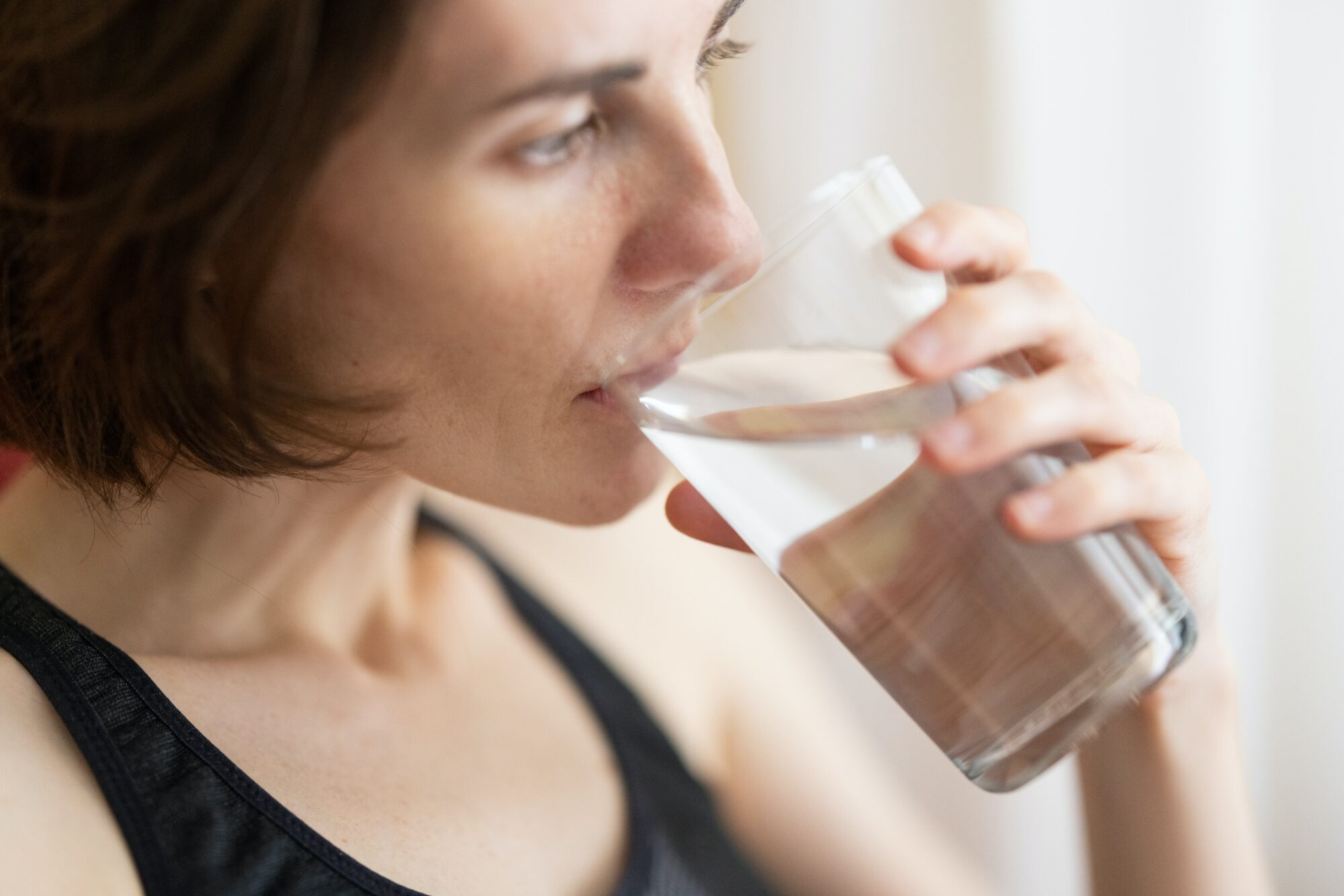
Don’t overthink water on keto. Drink when you’re thirsty, and if you sweat a lot or you’re going through a bout of illness that has you vomiting or experiencing diarrhea, increase your water intake and add electrolytes.
Looking for a complete keto meal?
Then check out Keto Chow! Keto Chow is a low-carb meal shake with 1/3 of your daily recommended nutrients. It can be made in seconds, and it comes in over 30 delicious flavors.
